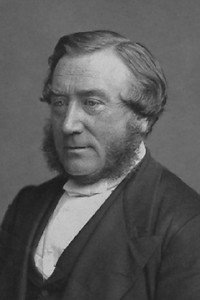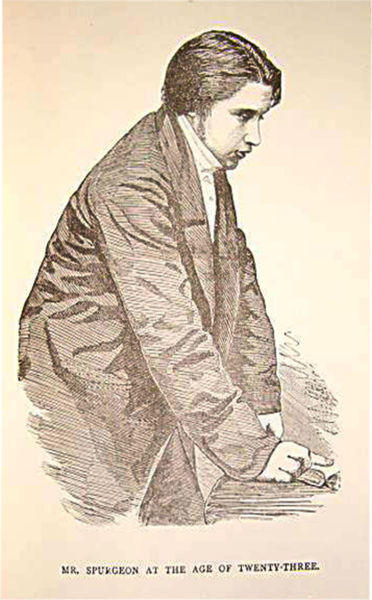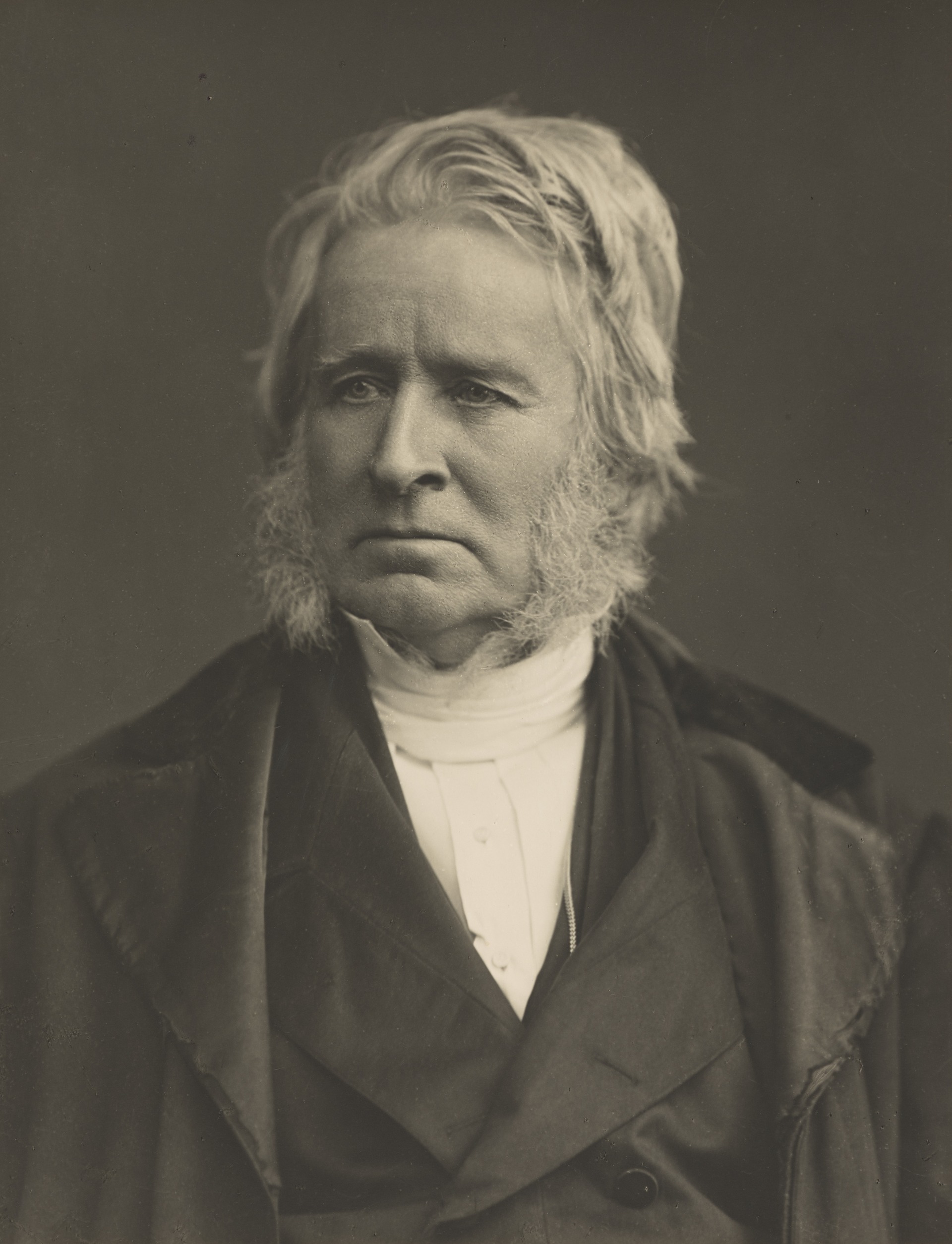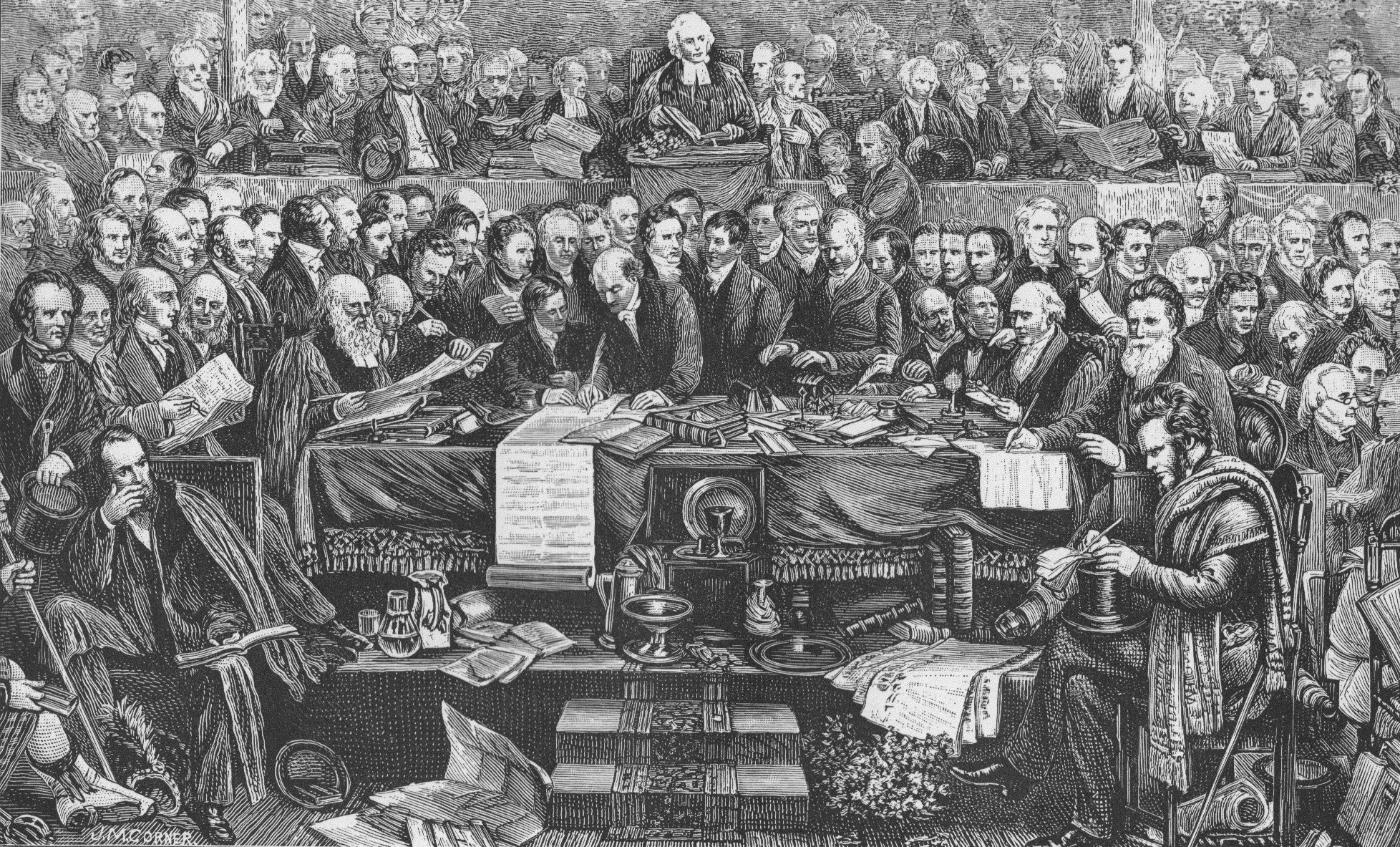|
John Kennedy Of Dingwall
John W. Kennedy (15 August 1819 – 28 April 1884), usually known as John Kennedy of Dingwall or simply Dr Kennedy at the popular level, was a Scottish minister of the Free Church of Scotland. He was minister of just one church, in Dingwall, for forty years from his ordination in 1844 until his death. Biography Kennedy was born in Killearnan and studied at King's College, Aberdeen. He was converted in 1841, after he had already started training for the ministry, and shortly after the death of his father, John Kennedy of Killearnan. Kennedy was licensed to preach by the established Church of Scotland in September 1843, but then joined the Free Church, being inducted into the newly formed congregation at Dingwall in February 1844. He married Mary MacKenzie in 1848. Kennedy became the leader of the Highland Evangelicals. According to John Noble, "Christ was the centre and sun of his preaching." Alasdair J. Macleod argues that Kennedy "emphasised personal piety, self-examination ... [...More Info...] [...Related Items...] OR: [Wikipedia] [Google] [Baidu] |
John Kennedy Of Dingwall
John W. Kennedy (15 August 1819 – 28 April 1884), usually known as John Kennedy of Dingwall or simply Dr Kennedy at the popular level, was a Scottish minister of the Free Church of Scotland. He was minister of just one church, in Dingwall, for forty years from his ordination in 1844 until his death. Biography Kennedy was born in Killearnan and studied at King's College, Aberdeen. He was converted in 1841, after he had already started training for the ministry, and shortly after the death of his father, John Kennedy of Killearnan. Kennedy was licensed to preach by the established Church of Scotland in September 1843, but then joined the Free Church, being inducted into the newly formed congregation at Dingwall in February 1844. He married Mary MacKenzie in 1848. Kennedy became the leader of the Highland Evangelicals. According to John Noble, "Christ was the centre and sun of his preaching." Alasdair J. Macleod argues that Kennedy "emphasised personal piety, self-examination ... [...More Info...] [...Related Items...] OR: [Wikipedia] [Google] [Baidu] |
Charles Spurgeon
Charles Haddon Spurgeon (19 June 1834 – 31 January 1892) was an English Particular Baptist preacher. Spurgeon remains highly influential among Christians of various denominations, among whom he is known as the "Prince of Preachers". He was a strong figure in the Reformed Baptist tradition, defending the 1689 London Baptist Confession of Faith, and opposing the liberal and pragmatic theological tendencies in the Church of his day. Spurgeon was pastor of the congregation of the New Park Street Chapel (later the Metropolitan Tabernacle) in London for 38 years. He was part of several controversies with the Baptist Union of Great Britain and later he left the denomination over doctrinal convictions. While at the Metropolitan Tabernacle he built an Almshouse, the Stockwell Orphanage and encouraged his congregation to engage actively with the poor of Victorian London. He also founded Spurgeon's College, which was named after him posthumously. Spurgeon authored sermons, an auto ... [...More Info...] [...Related Items...] OR: [Wikipedia] [Google] [Baidu] |
James Begg
James Begg (31 October 1808 in New Monkland, Lanarkshire, Scotland – 29 September 1883) was a minister of the Free Church of Scotland who served as Moderator of the General Assembly 1865/66. Life He was born in the manse at New Monkland the son of James Begg of the Church of Scotland. He studied Divinity at Glasgow University graduating MA in 1824 and was licensed by the Presbytery of Hamilton in 1829 and was ordained as a minister by the Church of Scotland at Maxwelltown in Dumfriesshire in 1830. In 1831 he became assistant to Rev Dr Jones at Lady Glenorchy's Church in Edinburgh, and in 1832 moved to the Middle Parish Church in Paisley before being translated back to Edinburgh to serve Liberton parish in 1835. Begg left the established Church of Scotland at the Disruption of 1843. He then became a minister of the Free Church of Scotland, serving Newington Free Church, but he was branded a 'disrupter of the peace' within the Free Church itself. The church was one ... [...More Info...] [...Related Items...] OR: [Wikipedia] [Google] [Baidu] |
Hugh Martin (minister, Born 1822)
Hugh Martin (11 August 1822 – 14 June 1885) was a Scottish minister of the Free Church of Scotland and theological author. Life He was born in Aberdeen on 11 August 1822 the son of Alexander Martin, a clothier and haberdasher living at 79 Gallowgate. He was educated at Aberdeen Grammar School then took an arts degree at Marischal College graduating with an MA in 1839. He then took a second degree in Theology at King's College, Aberdeen.Oxford Dictionary of National Biography In 1842 he was converted to the principles of the Free Church of Scotland by Rev Dr William Cunningham who became a life-long mentor. In the Disruption of 1843 he joined the Free Church faction and was one of the first ministers ordained directly into that faction without transfer from the Church of Scotland. Licensed to preach by the Free Church in 1843 he was thereafter ordained as minister of Panbride near Carnoustie. In 1858 he left Panbride to take on the role as minister of Greyfriars Free Church ... [...More Info...] [...Related Items...] OR: [Wikipedia] [Google] [Baidu] |
University Of Aberdeen
The University of Aberdeen ( sco, University o' 'Aiberdeen; abbreviated as ''Aberd.'' in List of post-nominal letters (United Kingdom), post-nominals; gd, Oilthigh Obar Dheathain) is a public university, public research university in Aberdeen, Scotland. It is an Ancient universities of Scotland, ancient university founded in 1495 when William Elphinstone, Bishop of Aberdeen and Lord Chancellor of Scotland, Chancellor of Scotland, petitioned Pope Alexander VI on behalf of James IV of Scotland, James IV, King of Scots to establish King's College, Aberdeen, King's College, making it Scotland's 3rd oldest university and the 5th oldest in the English-speaking world and the United Kingdom. Aberdeen is consistently ranked among the top 160 universities in the world and is ranked within the top 20 universities in the United Kingdom according to ''The Times'' and ''The Sunday Times'', and 13th in the UK according to ''The Guardian''. The university comprises three colleges—King's College ... [...More Info...] [...Related Items...] OR: [Wikipedia] [Google] [Baidu] |
Doctor Of Divinity
A Doctor of Divinity (D.D. or DDiv; la, Doctor Divinitatis) is the holder of an advanced academic degree in divinity. In the United Kingdom, it is considered an advanced doctoral degree. At the University of Oxford, doctors of divinity are ranked first in "academic precedence and standing", while at the University of Cambridge they rank ahead of all other doctors in the "order of seniority of graduates". In some countries, such as in the United States, the degree of doctor of divinity is usually an honorary degree and not a research or academic degree. Doctor of Divinity by country or church British Isles In the United Kingdom and Ireland, the degree is a higher doctorate conferred by universities upon a religious scholar of standing and distinction, usually for accomplishments beyond the Ph.D. level. Bishops of the Church of England have traditionally held Oxford, Cambridge, Dublin, or Lambeth degrees making them doctors of divinity. At the University of Oxford, docto ... [...More Info...] [...Related Items...] OR: [Wikipedia] [Google] [Baidu] |
John Macdonald (Apostle Of The North)
John Macdonald (1779–1849) was a Scottish minister known in Scotland as the Apostle of the North. He is also remembered for his visits and descriptions of life on St Kilda, Scotland, St Kilda. Early life and education He was born at Balnabein near Reay on the extreme north-most coast of Scotland on 12 November 1779. His father was a weaver and catechist. He was educated at Reay parish school (a church school) then studied Divinity and Mathematics at King's College, Aberdeen graduating MA in March 1801. He is said to have been the best mathematician in Scotland. He was licensed to preach by the Presbytery Church of Scotland in Caithness in 1805. He began working as an assistant minister at Kingussie then did mission work at Berriedale, Highland, Berriedale. In Edinburgh In January 1807 he went to the Gaelic Chapel on Castle Wynd in Edinburgh to replace James McLachlan. During his time in Edinburgh he lived at Ramsay Gardens close to the chapel. During his Edinburgh mini ... [...More Info...] [...Related Items...] OR: [Wikipedia] [Google] [Baidu] |
Dwight L
Dwight may refer to: People * Dwight (given name) * Dwight D. Eisenhower (1890–1969), 34th president of the United States and former military officer *New England Dwight family of American educators, military and political leaders, and authors * Ed Dwight (born 1933), American test pilot, participated in astronaut training program * Mabel Dwight (1875–1955), American artist * Elton John (born Reginald Dwight in 1947), English singer, songwriter and musician Places Canada * Dwight, Ontario, village in the township of Lake of Bays, Ontario United States * Dwight (neighborhood), part of an historic district in New Haven, Connecticut * Dwight, Illinois, village in Livingston and Grundy counties * Dwight, Kansas, city in Morris County * Dwight, Michigan, an unincorporated community * Dwight, Nebraska, village in Butler County * Dwight, North Dakota, city in Richland County * Dwight Township, Livingston County, Illinois * Dwight Township, Michigan Institutions * Dwight Correctional ... [...More Info...] [...Related Items...] OR: [Wikipedia] [Google] [Baidu] |
William Robertson Smith
William Robertson Smith (8 November 184631 March 1894) was a Scottish orientalist, Old Testament scholar, professor of divinity, and minister of the Free Church of Scotland. He was an editor of the ''Encyclopædia Britannica'' and contributor to the ''Encyclopaedia Biblica''. He is also known for his book ''Religion of the Semites'', which is considered a foundational text in the comparative study of religion. Life and career Smith was born in Keig in Aberdeenshire the eldest son of Rev Dr William Pirie Smith DD (1811–1890), minister of the recently created Free Church of Scotland for the parishes of Keig and Tough, and of his wife, Jane Robertson. His brother was Charles Michie Smith. He demonstrated a quick intellect at an early age. He entered Aberdeen University at fifteen, before transferring to New College, Edinburgh, to train for the ministry, in 1866. After graduation he took up a chair in Hebrew at the Aberdeen Free Church College in 1870, succeeding Prof Marcu ... [...More Info...] [...Related Items...] OR: [Wikipedia] [Google] [Baidu] |
Higher Criticism
Historical criticism, also known as the historical-critical method or higher criticism, is a branch of criticism that investigates the origins of ancient texts in order to understand "the world behind the text". While often discussed in terms of Jewish and Christian writings from ancient times, historical criticism has also been applied to other religious and secular writings from various parts of the world and periods of history. The primary goal of historical criticism is to discover the text's primitive or original meaning in its original historical context and its literal sense or ''sensus literalis historicus''. The secondary goal seeks to establish a reconstruction of the historical situation of the author and recipients of the text. That may be accomplished by reconstructing the true nature of the events that the text describes. An ancient text may also serve as a document, record or source for reconstructing the ancient past, which may also serve as a chief interest to the ... [...More Info...] [...Related Items...] OR: [Wikipedia] [Google] [Baidu] |
Regulative Principle Of Worship
The regulative principle of worship is a Christian doctrine, held by some Calvinists and Anabaptists, that God commands churches to conduct public services of worship using certain distinct elements affirmatively found in scripture, and conversely, that God prohibits any and all other practices in public worship. The doctrine further determines these affirmed elements to be those set forth in scripture by express commands or examples, or if not expressed, those which are implied logically by good and necessary consequence. The regulative principle thus provides a governing concept of worship as obedience to God, identifies the set of specific practical elements constituting obedient worship, and identifies and excludes disobedient practices. Overview The regulative principle of worship is held, practiced, and vigorously maintained by conservative Reformed churches, the Restoration Movement, and other conservative Protestant denominations. Historic confessional standards stating t ... [...More Info...] [...Related Items...] OR: [Wikipedia] [Google] [Baidu] |



.jpg)

